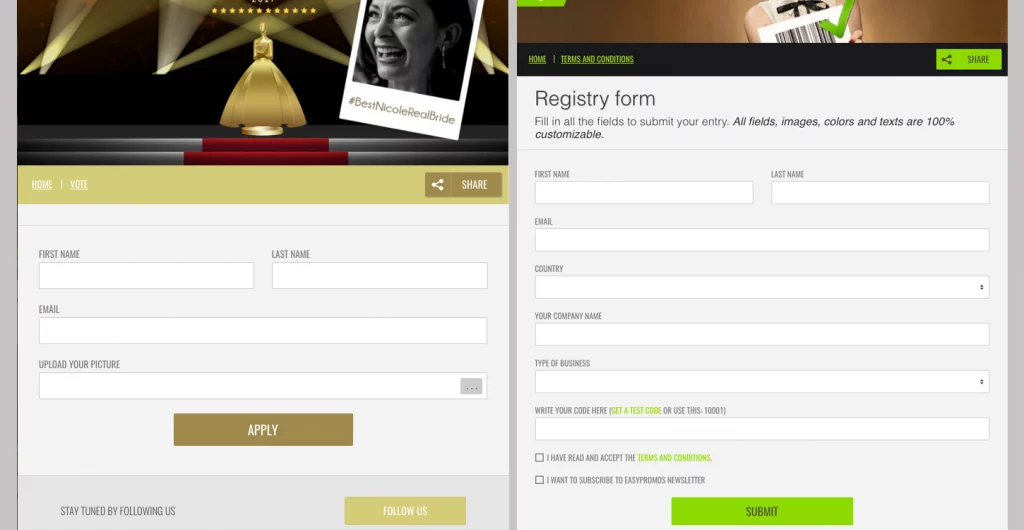This data is revealing. It shows how important it is to consider the users’ attitudes towards brand promotions when designing digital marketing campaigns and attempting to achieve the objectives of your Inbound Marketing strategy.
Contests and promotions are good tools for brands to use to get to know their target audience better; they can also provide useful information and content for leads, encouraging them throughout the purchase process until they become customers.
An important element in social media contests and sweepstakes is that they help you interact with participants, even once the promotion is over. They are also an extremely powerful method to build customer loyalty.
What is the key factor to get the most out of your social media promotion? This lies, without a doubt, in the information that a brand can obtain from its potential customers. The more information a brand obtains about its buyer persona, the more accurately it can identify each individual who forms part of their target audience, and the more chance the brand has of using the right strategies, generating interest in offers and promotions and detecting business opportunities.
Contests are presented as a great opportunity for brands to interact with their audiences. It’s a fun way of connecting with a target audience and obtaining vital information about it.
How to obtain information about buyer personas via contests
Contests provide an excellent opportunity for brands to interact with their audience. It’s a fun way of connecting with a target audience and obtaining important information about them. This information can be obtained directly, via a registration form that users must complete to participate; or it can be obtained indirectly by analyzing the behavior of users in a contest and seeing how they have reacted to the contest dynamic.
The information obtained from registration forms in contests is usually truthful, as participants will be careful to provide the correct information to have a chance of winning the prize. However, the brand should assess which fields to include in the registration form and which information to ask for. It’s important to bear in mind that asking for a lot of data, or for highly personal information, can put a brake on participation. The effort you ask participants to make should be in accordance with two variables:
- The brand’s need for data. Only data that is strictly necessary for advancing the strategy should be requested of participants.
- The benefits awarded to contest participants should compensate the effort it takes to participate. The more information you ask for – or the more personal the questions you ask – the more generous the prize should be. There should be a balance – a win-win relationship between contest organizer and contest participant.
Keeping in mind the above, the type of information you could request in a registration form includes: email address, name and surname, place of residence, postal code, employment status, company, position, studies and city/date/year of birth. You could also include an open response question (depending on the information you wish to obtain). Here we have a couple of examples of registration forms:

However, it’s important to remember that you must offer participants something worthwhile if you expect them to leave their data.
As we’ve said before, there’s another type of information you can obtain that’s not directly provided by contest participants, and that can help you deepen your knowledge of your leads.
This analysis will be even more valuable if, instead of organizing a one-off contest, you implement a series of planned contests. This will enable you to observe patterns of behavior from your participants over a prolonged period. It should then be possible to draw conclusions about whether the registration form is suitable and which prizes inspire most interest among users. You should also be able to assign interests to your contacts based on the theme of the contest they have participated in. This will help you decide which types of campaigns to aim at this target audience in the future, such as email marketing campaigns and so on.
If you design the right contest dynamic and choose the perfect prize for your brand’s target audience – keeping in mind the objectives of the promotions you’re going to implement – your contests will become a highly valuable source of information for your brand’s Inbound Marketing strategy.
Access the Easypromos Dashboard now and create the contest or sweepstakes that best fits your strategy!